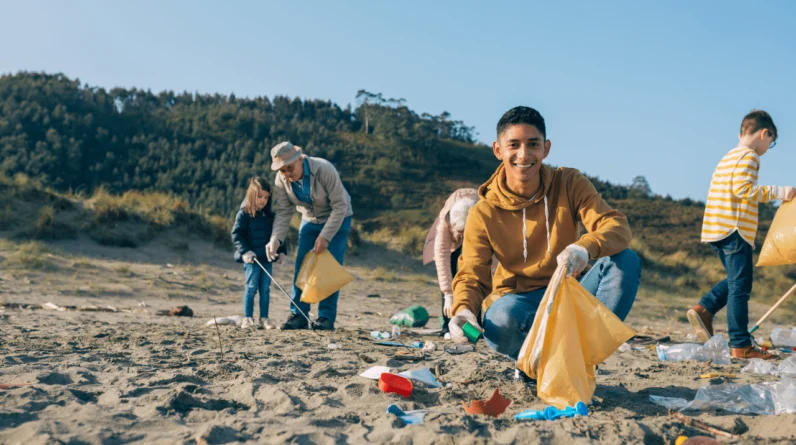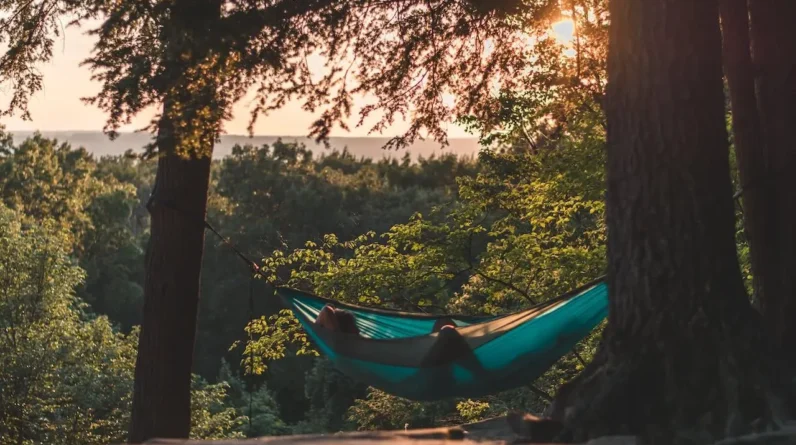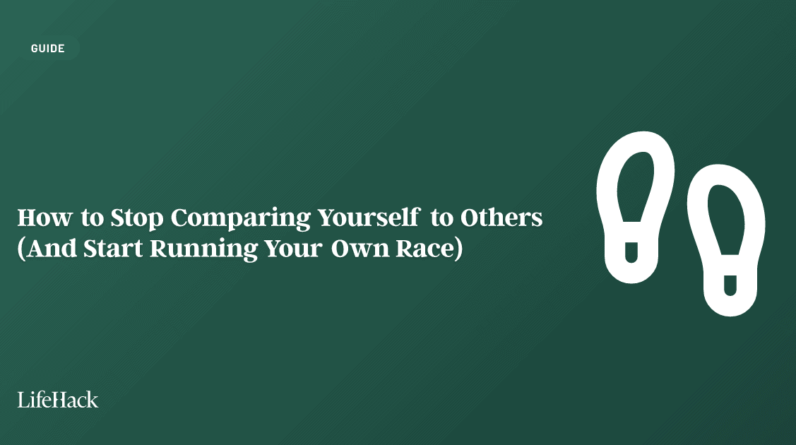
We’re living in an era of environmental awakening.
You might find yourself scrolling through feeds filled with melting glaciers, devastating wildfires, and species on the brink of extinction. And while you may recycle, advocate, and more, you might be feeling an anxiety that never quite disappears.
You may feel guilt, and maybe this feeling follows every purchase.
You may feel exhaustion from carrying the weight of a crisis that perhaps you didn’t even help create.
Climate anxiety is a growing reality affecting many individuals today. In other words, you aren’t alone, and there is a name for what you’re feeling.
Even those most dedicated to sustainability can find themselves frozen, caught between urgency and hopelessness. And the more we care, the more paralyzed we can become.
- But what if this emotional weight isn’t something to suppress or escape?
- What if the anxiety we feel about the planet isn’t a burden—but a call to evolve?
Below, we explore how to transform that emotional turbulence into empowered, meaningful action and how personal development can become our compass in a changing world.
What is Climate Anxiety and Eco-Grief?
Climate anxiety is the chronic fear of environmental collapse—a persistent dread about the future of our planet and the systems that sustain life. However, it’s not a clinical diagnosis, but rather a rational reaction to an irrational situation.
Closely related is eco-grief: the mourning process for what we’ve already lost.
We might grieve for coral reefs bleached beyond recovery, for species that will exist only in photographs, for the childhood landscapes that no longer look the way we remember.
We may also grieve for indigenous communities displaced by rising seas, for the future we once imagined, and for the certainty we thought we’d have.
These emotions manifest as sadness, guilt, anger, helplessness, and sometimes numbness—a protective shutdown when everything feels like too much. You might feel guilty about driving to work, angry at governments and corporations, or sad when you see old photos of abundant wildlife. You might oscillate between obsessive news-checking and complete avoidance.
But give yourself some grace; these responses are normal and very common.
They’re also evidence of awareness and compassion, not personal flaws or weaknesses. Feeling distressed about the state of our planet means you’re paying attention, and that awareness—however uncomfortable—is the first step toward meaningful engagement and even your own personal development.
How to Know if You’re Experiencing Climate Anxiety or Eco-Grief
You don’t have to be an environmental scientist or activist to feel the weight of the world.
Climate anxiety and eco-grief can show up in subtle, everyday ways—often blending emotional, mental, and even physical signs.
You might be experiencing them if you notice:
- Persistent worry or dread about the planet’s future, even when you’re not directly reading or hearing about climate news.
- Emotional swings—from guilt or anger to sadness or numbness—when thinking about environmental issues.
Avoidance behaviors, such as scrolling past climate headlines or feeling overwhelmed by sustainability conversations. - Feelings of powerlessness, as if personal actions can’t possibly make a difference.
- Trouble relaxing or sleeping after exposure to environmental content or extreme-weather stories.
- Hyper-vigilance or over-researching, checking environmental updates constantly as a way to feel in control.
- Physical tension or fatigue that mirrors emotional heaviness—your body carrying the stress of global concern.
- Loss of joy or hope when imagining the future, especially regarding children, travel, or nature itself.
Ultimately, recognizing these patterns is an act of self-awareness. Once named, these emotions can be understood, supported, and—most importantly—transformed into focused, life-affirming action.
Related Article: 3 Easy and Simple Secrets for Relieving Morning Anxiety & Stress
The Psychology of Environmental Overwhelm: Why Does it Happen Anyway?
Evolutionary psychology reveals how humans evolved to respond to immediate, tangible threats—such as the predator (like a bear or tiger) in the grass or the stranger at the cave entrance.
Our nervous systems excel at acute stress responses but struggle with chronic, abstract dangers that unfold over decades rather than seconds.
Climate change exists on a scale that’s both massive and intangible (it’s basically the same problem we’re experiencing with the online world, where it’s never been natural for our brains to be connected to billions of other people).
And with climate change, we can’t fight it, flee it, or see it directly in our day-to-day lives. Its most catastrophic effects often seem distant in time and space, even as the evidence accumulates on our screens.
We scroll through apocalyptic headlines, extreme weather footage, and species loss statistics, which keeps our stress response chronically activated without the natural release that comes from immediate action or safety.
And often we end up exhausted, often from wanting desperately to do more while feeling impossibly small. You recycle diligently, but you’re also aware of the cargo ships.
You choose plant-based meals, but you’ve seen the maps of deforestation. The gap between your individual efforts and the magnitude of the problem creates cognitive dissonance that drains emotional resources.
So, how can we fix this? How can we turn environmental anxiety to climate action?
Getting Out of the Rut: From Climate Anxiety to Empowered Action
Action is frequently the antidote to anxiety.
Research consistently shows that taking concrete steps, however small, reduces anxiety and distress while increasing feelings of hope and self-efficacy. These steps forward activate your sense of agency.
And they work on multiple levels. Practically, they reduce your environmental footprint. Psychologically, they signal to your brain that you’re not powerless—you can make a change, you are making a change.
So, what should you try?
Start With Everyday Swaps
Begin where you are with what you have.
Carry reusable water bottles, coffee cups, and shopping bags. Start composting food scraps or supporting local farmers’ markets. Switch to reef-safe sunscreen or plastic-free personal care products. While small, these steps can actually make a difference to you.
Join Community Climate Efforts
Individual action matters, but collective action transforms.
Participate in local tree-planting initiatives, beach cleanups, or community garden projects. Join climate advocacy groups, such as Fridays for the Future or even the Earth Hero App + Community, or attend town halls about environmental policy.
The connections you build become sources of support, inspiration, and amplified impact.
Use Your Voice and Skills
Your unique talents are climate assets. So, consider writing letters to representatives about environmental legislation. Use art, music, or storytelling to communicate climate messages.
You may even want to mentor younger people interested in sustainability or learn from elders about traditional ecological practices. Do what feels right for you and aligns with your strengths or skills.
Apply the One Small Change Rule
Sustainable change happens incrementally.
Commit to one realistic habit shift at a time—maybe Meatless Mondays before going fully plant-based, or buying secondhand for three months before eliminating all new purchases. Master one change, let it become automatic, then add another.
Progress, not perfection, is the goal.
Related Article: 6 Calming Anxiety Techniques to Beat the Panic in 5 Minutes or Less
Guiding Your Personal Development in an Uncertain World
Climate engagement isn’t necessarily separate from personal growth.
Developing the capacity to live meaningfully in uncertain times requires building internal resources that support both well-being and sustained action.
So, most importantly, invest in yourself first. This should be your starting point. From there, you can take those actions without diverting energy from other areas.
Ask yourself:
- What do I truly care about?
- Where are my actions matching my values, and where is there a disconnect?
- What small change would feel meaningful rather than performative?
Simply, start by living intentionally. Honor your pace while maintaining your direction.
The size of the action matters less than the consistency and intentionality behind it.
Every small action creates a feedback loop of competence and hope, making the next action easier.
And anxiety isn’t a flaw you need to feel bad about. Our feelings are often pointing us toward a direction, one that matters to us and helps guide our unique path.
Read Next: Release Your Guilt: 8 Practical Ways to Stop Feeling Bad







